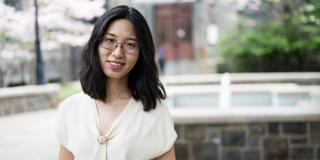In its purest form, a liberal arts and sciences education is about learning how to learn, how to evaluate arguments and experiences, how to enrich and enjoy the whole of human life rather than attempting to master some set of techniques or particular body of knowledge in a four-year preparation for a predetermined career. No matter which area of the arts and sciences you pursue, the general lesson remains the same—knowledge is contingent, contested, and in flux. You come to realize that, although nothing can be known for certain, there are nevertheless historically developing standards for judging the quality of ideas as well as works of art, and it is these socially constructed and evolving standards and modes of evaluating that endure. Built upon a relentless questioning of everything in existence, challenging entrenched authority (scientific, cultural, and economic no less than political), and yet disciplined by intellectual honesty and humility, the liberal arts and sciences are about pushing the limits of human understanding – seeing things in new ways, evaluating and suggesting alternatives to what is, and learning not to fear but to celebrate the inherent uncertainty of our knowledge about the universe.
Curiosity and intellectual playfulness are core underlying values of the liberal arts and sciences. Handed a rose, our students appreciate its beauty, savor its smell, look for the bee, and ponder the thorn. Our college is a place where students learn about the myriad dimensions of things, for example, how a song can be a waveform, a consumable product, a message, an inspiration—and all of these at once. While some students wonder about the practicality of a liberal arts education (will a liberal arts degree help you to get a job after college?), a Lehigh education is distinguished by a longstanding tradition of pragmatism. The play of ideas is not a game that isolates theory from practice, but one that results in the continuous transforming of theory into practice. Genuinely to understand an idea is also to understand its potential relevance for human life, problems, and practices. For precisely this reason, students educated in the liberal arts and sciences at Lehigh are wonderfully prepared to pursue any number of careers, to engage in a whole range of rewarding professional and personal activities.
Most importantly, these students are best prepared to follow the advice that Henry David Thoreau offered in explaining his own rationale for living at Walden Pond. Thoreau wanted, and he hoped that his readers would also want, to live “deliberately,” avoiding lives of “silent desperation.” To embark on the journey of a liberal arts education is to embrace the challenge of living deliberately, resisting the temptation to move busily but mechanically through life, only to discover down the road that one has never truly lived at all.






